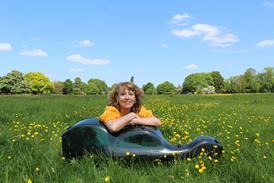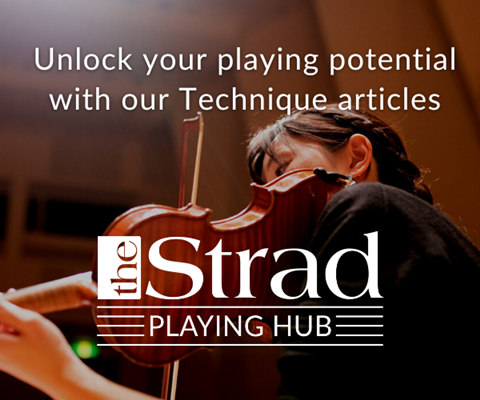Understanding what influences your performance anxiety is the key to overcoming stage fright, writes practice and performance consultant Adam Hockman

Explore more Technique articles like this in The Strad Playing Hub
A not-uncommon scenario for musicians is devoting long hours of practice for a performance and then being disappointed with the outcome. Daily practice can sometimes make you feel more ’performance ready’ than you actually are. One reason for this is that the variables of a practice environment—acoustics, visual distractions, and the ability to go back to fix a mistake—differ from those in the performance space. When you throw in performance excitement and anxiety, it becomes easier to spot the potential for things not going as planned or as hoped.
Performance anxiety—aka stage fright, nerves—is a much-examined topic in psychology. Researchers have studied it across sports, academics, music, and numerous fields where it crops up. Strategies for mitigating or stopping performance anxiety range from mindfulness to mock performances to chemical interventions.
To start addressing performance anxiety, you need to get a handle on your reaction to performance conditions. Consider these questions and document your answers to them during your upcoming performances:
● What kind of performance is it (e.g., high stakes, teacher present, audition)?
● Describe the environment: noises, temperature, lighting, distance from the audience, backstage, etc.
● What thoughts or feelings do you have before, during, or after the event?
● How does your body react to this event (e.g., hands sweating, heart racing)?
● Do these bodily reactions, thoughts, or feelings have any impact on your performance?
● Are you trying any strategies to overcome these negative reactions before, during, or after the event? If so, do they work?
These exploratory questions help pinpoint environmental factors, physiological responses, and behaviors that are present during a performance event. Understanding what influences your performance anxiety and outcomes is more constructive than lamenting, ’It was horrible, the worst I’ve ever played.’
Besides recording answers to those questions, there are two strategies you can try to promote internal stability. With greater equilibrium, you are poised to learn more, better intervene, and have more agency over the connection between what you want and how you can get there.
Understanding what influences your performance anxiety and outcomes is more constructive than lamenting, ’It was horrible, the worst I’ve ever played.’
Take care of your body leading up to the performance. Even when it feels impossible to control your performance anxiety or nerves, there are, in fact, some things you can control: sleep, water intake, caffeine intake, food intake (how much, how often, quality), technology use (alas, also: how much, how often, quality), attire, arrival time, and pre-performance routine. Examine these variables and make adjustments to a few of them that you think will lead to beneficial results.
For example, if you know that six hours of sleep is not enough to feel secure on performance day, make a concrete plan—yes, write it down—for getting the sleep you need, and not just on the night before; it needs to happen for a few days. Anticipate the barriers that can interfere with your reaching your goals and make every effort to work around them.
Move in slow motion. When adrenaline floods your body during a performance, it increases the risk of a mishap. That calm state you experienced throughout practice dissipates. Before butterflies hit your stomach and your heart begins to race, try slowing everything down. Move through your routines at a significantly slower rate than you usually do. Build in enough time to walk to the venue at a leisurely pace, all the while focusing on your breathing.
Deliberately open your instrument case and warm up for at least several luxurious minutes. As thoughts arise, hear them but then let them move on without putting any weight or judgement on them. If you are reactive to noise around you (people, the hum of an AC or HVAC), use headphones to listen to a track of ambient noises or background music (try this one). You’ll come to associate the ambient noises or music with calmness and slow-motion activity. This, and a general slow-down of movement, will expand your ’mental real estate’ so that you can focus on the vivid, compelling performance you wish to create for the audience.
Implement these two strategies and track their effects as you answer the earlier questions about your performance. As with other aspects of music making, it takes time, experimentation, and patience to understand how your body and mind react to performance conditions and to identify ways to manage disruptive nerves. It is worth the investment, precisely because it is so key to being a serious musician. Good luck!
Adam Hockman is a practice and performance consultant on the faculty of the Heifetz International Music Institute. He applies his training in behavioural and learning science to music practice, performance, and teaching, and writes about these subjects for different music sites and magazines. Learn more at adamhockman.com.
Read: Four preparation musts for competition season
Read: The show must go on: letting performance inform practice
Read: Conquering performance nerves: how do I control my fear of failure?
Read more Technique articles like this in The Strad Playing Hub



































No comments yet